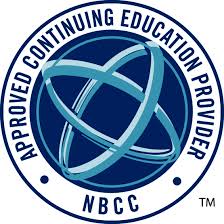
Next Dates TBA
Presented via Zoom Video Communications
Presented by:
Andrew White, PhD, ABPP
![]() DBT-Linehan Board of Certification Certified Clinician™
DBT-Linehan Board of Certification Certified Clinician™
COURSE DESCRIPTION:
When asking clinicians about their concerns regarding provision of mental health services, one of the most common worries is the fear around losing a client to death by suicide (e.g. Jobes, Rudd, Overholser, & Joiner, 2008; Jobes, 2010). Yet formal instruction around suicide and postvention – a term referring to activities that reduce risk and promote healing after being impacted by a suicide loss – continue to receive little attention in formal graduate training (Dexter-Mazza & Freeman, 2003). This may be in part due to the fact that while there is literature is available regarding suicide rates and postvention protocols for psychiatry (e.g. Erlich et al, 2018; Henry, Ramages, & Cheung, 2020), there is limited information regarding postvention work for clinicians in general.
Proposed protocols for postvention call for balancing the needs of the family survivors, the needs of the clinician survivor, and the needs of the clinic or agency (Renz, Miller, & Graling, 2022). The current presentation will review literature on best practices related to postvention intervention, focusing on frameworks for effective communication, proactive postvention, and support for colleagues and families involved. It is our intention that this training serves as a way to increase community collaboration and move towards shared wisdom and coping with regards to difficult aspects of providing mental health services.
LEARNINING OBJECTIVES:
Upon completion of this training, participants will be able to:
- Participants will be able to name three general best practices for postvention.
- Participants will be able to describe how to balance process and outcomes with regards to postvention.
- Participants will be able to describe what “proactive postvention” means and how to implement it.
- Participants will be able to describe best practices in staff, patient, and family communications regarding postvention.
- Participants will be able to describe best practices in staff, patient, and family support during postvention.
WHO SHOULD ATTEND?
This training is suitable for mental health professionals at all levels of training.
REQUIREMENTS AND PREREQUISITES:
None.
CONTINUING EDUCATION HOURS:
 Participants who complete the full training will earn 3 CE hours. This training is not eligible for partial credits.
Participants who complete the full training will earn 3 CE hours. This training is not eligible for partial credits.
Portland DBT Institute has been approved by NBCC as an Approved Continuing Education Provider, ACEP No. 6326. Programs that do not qualify for NBCC credit are clearly identified. Portland DBT Institute is solely is responsible for all aspects of the programs.
PRICING:
| Individual Registration Fee $159.00 |
Group Registration Fee for 3 or more $125.00 /person |
Student Registration Fee $115.00 |
Private Training Requests
Portland DBT Institute training is available to schedule as a private training for your group. PDBTI’s training team travels locally, nationally, and internationally, to provide evidence based, adherent DBT training. Please fill out our Training Request Form and a training coordinator will contact you to see how we can work together to exceed your organization’s training goals.
CANCELLATIONS AND REFUNDS
A $60.00 handling fee will be deducted upon cancellation. Refund requests by fax or email must be received two weeks before the start date. In addition, the fees are non-transferrable.
PDBTI reserves the right to cancel any program due to under-enrollment, or any course due to work stoppages, instructor illness or inclement weather. If a course is cancelled, PDBTI is responsible for refunding only the course fee.
